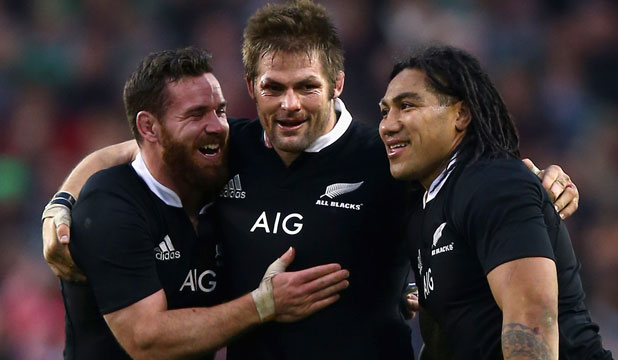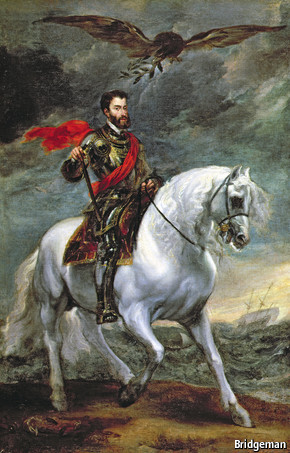
WINNING WAYS: All Blacks Ryan Crotty, Richie McCaw and Ma’a Nonu celebrate beating Ireland to claim a Europe tour grand slam in 2013.
New Zealand may have missed out on setting a new record for consecutive test rugby victories, but their domination of the game is unlikely to stop soon, an academic study claims.
The study, by former rugby administrator and provincial player Tom Johnson, has looked at how a country of less than 4.5 million people has managed to dominate world rugby for so long.
The All Blacks have won more than 76 per cent of their 516 test matches since 1903, 10 per cent higher than South Africa, which has the second best record, winning 66 per cent of their 432 tests.
New Zealand’s winning percentage has exceeded 80 since rugby turned professional in 1995, but the culture behind their success can be traced directly back to the 1905 ‘Originals’ and 1924 ‘Invincibles’ teams, Johnson’s study showed.
“There has been an ethos, or legacy of winning since the 1905 and 1924 teams that has been carried on,” the 75-year-old lead author of Legends in Black – New Zealand Rugby Greats on Why We Win said.
“We established very early on that legacy of winning. As such our public is very demanding of our coaches and players. Only winning is good enough.”
Johnson’s research involved interviewing former All Blacks greats and revealed that in the absence of the sort of coaching and management structures that existed today, the team culture was fostered by the players themselves.
And while the All Blacks now embraced the best of modern support structures, that underlying winning culture has been passed down through the years, from player to player.
“The senior players created an informal group that took over and set the standards and the values of the team,” Johnson said.
“If the members of the group believe in those values and it shows them they can be successful, then that becomes part of the culture.”
Johnson’s book stemmed from his PhD thesis into organisational culture and macro-environmental factors influencing change, and he argued that even the strongest culture was no guarantee of success if it failed to adapt.
He believed the All Blacks were an excellent case study for any organisation because of the way they have managed to maintain their advantage through their “commitment to learning” despite the revolution in rugby over the last 30 years.
“The world operates at such a fast pace, technological change is overwhelming us and to keep up, sports really need to be committed to learning,” he said.
“This is one of the things I found with the current All Blacks (from) the Graham Henry regime through to the current day is that they have made a commitment to learning.”
That commitment has not just allowed the All Blacks to maintain their high standards, but to forge even further ahead of the rest of the world.
In the 10 years since Henry was appointed in 2004, they won almost 88 per cent of their matches. Under current coach Hansen, who took over after the 2011 World Cup, they have lost just one of their 32 tests.
Going into last weekend’s match against Australia, they had equalled a record for top-tier nations jointly held by the 1965-69 All Blacks and the 1997-98 Springboks with a 17-match winning streak.
The streak ended on Saturday with the 12-12 draw in Sydney, but Johnson said the constant evolution of the All Blacks culture would help them recover their hegemony quickly enough.
“Culture is a stabilising thing and if you don’t change you get set in your ways and there is the likelihood of getting beaten,” he said.
“That’s why I think the current team have adopted a learning culture. They have to. If they don’t they will be beaten.
“And that is what has made them very successful.”
– Reuters
Sponsored links






